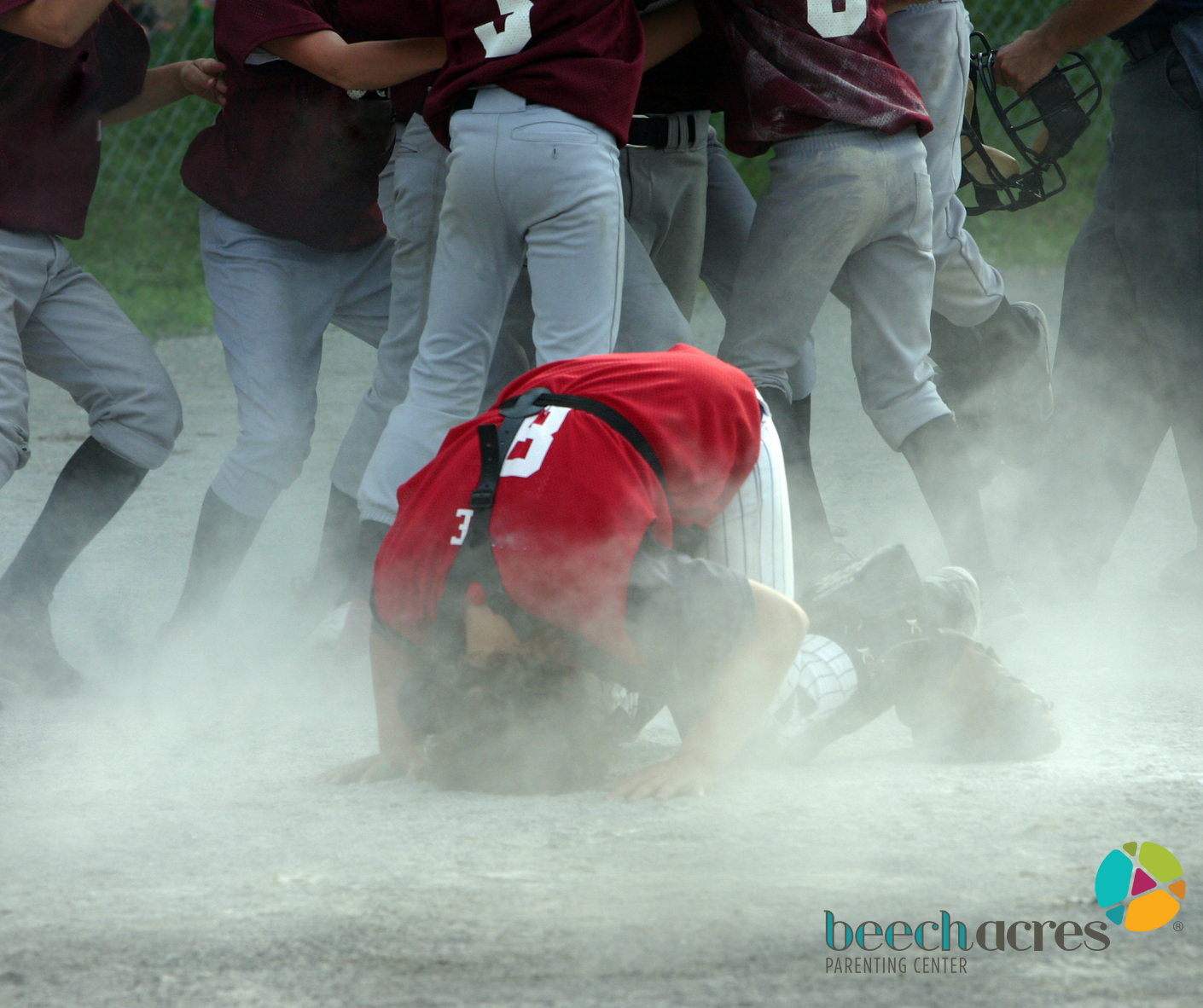Helping Emotionally Sensitive Boys Manage Their Emotions Positively

Helping Emotionally Sensitive Boys Manage Their Emotions Positively
Boys Have Feelings Too
Pre-teenage boys bring with them a wide range of complicated and unique issues. Recently we helped a family navigate some challenges related to emotional sensitivity that may sound familiar to you. Their 12-year-old son was having trouble processing and expressing emotions, especially around specific stressors. He was quick to react negatively to even seemingly basic or otherwise non-confrontational conversation. He remarked that he felt that he was being yelled at ‘all the time’. Further, he would quit trying and become frustrated when facing a loss in sports. Sound familiar? Read on for tips from our parenting experts on handling emotionally sensitive pre-teen boys.
During the pre-teen years, emotions can have a stronghold on both boys and girls. This can be as frustrating for parents as it is scary for kids. How those emotions get expressed depends on many factors. Knowing our own expectations, how our brains are wired, and ways to support, (not change) children, is key.
Social Cues and Unconscious Expectations
We live in a world that dictates to us, less so now than in previous generations but still exists, gender-approved responses. A little girl can cry without the same response that a little boy might receive. If a little girl keeps her emotions to herself, she may be seen as snobby or uncaring. Imagine this message for a boy about to be a teen! Unconsciously we encourage certain behaviors from our children so it’s important to check in with ourselves about those expectations. Where does our emotional gauge land? How different are we from our children? Check in with their teacher about the ‘language of emotion’ in the classroom. How is the teacher supporting a range of emotions equally from both genders and how is emotional regulation being encouraged?
Beech Acres may be in your child’s school. Click to learn more.
Brain Science/Development
We are born into the world equipped with many of our personality traits (temperament for example). These differences that are grounded in one’s biological makeup present diverse challenges for parents who must respond to different kinds of children. When it comes to finding the ‘best approach’, one size does not fit all. In addition, as young children develop, their early emotional experiences literally build from their biological makeup and become embedded into the architecture of their brains. Knowing that it is part of our wiring as to how we respond to our inner and outside world helps.
At no other time in a child’s life will they go through more emotional, physical, and cognitive changes than they do in their teens. An 11-year-old is ‘next door’ to that time in his life so everything is amplified. This can fuel or intensify emotions making a sensitive child seem even more so.
Emotional sensitivity happens in two ways: One is how tuned in to their own feelings and how tuned in to other people’s feelings they are. Developmentally, children can experience one or the other differently. It can seem like ‘he does not care how his reaction makes me feel, he just seems to care about how it makes him feel”.
What Can Parents Do?
- Working with your child’s sensitivity, and appreciating this strength for all the wonderful benefits it provides him throughout life is a good place to start. Celebrate those advantages with him so that he does not feel as if there is something wrong with him.
- Share without judgment that is tuned in to how they feel is such a good thing AND it can also create some pretty strong feelings that take hold and can make us feel like we have no control.” Get curious: “do you notice how that happens for you?” You might share “when I have a strong reaction, I can feel it in my stomach. And I might say something that I later regret. What about you?” Using the language of emotion will help you to have this conversation.
- Get creative and curious. Role play with him. “Can you help me hear how my response should be so that it does not sound like yelling to you?” Watch a show together and notice how people speak differently to one another and talk about how you may hear the response differently and why: we listen to one another through our ‘filters’. You can make a mask with words on the front that are ways we hear others and on the inside how those words make us feel. A 12-year-old said his ‘outside word’ was “you need to” and his inside word was “you are not good enough”. Identifying one of his strengths, ask how he might use that to understand that a person’s tone is not always how we ‘filter’ it. Give examples of how you have misinterpreted a person’s response.
- Be clear about expectations. “I feel disrespected when you talk back to me”. Teaching children to pause is a great way for them to learn to be less reactive. Ask, “How can you help yourself to pause before responding because when you talk back I stop listening and that does not get either of us anywhere.” Follow up with that question: “How will that make a difference in the way that we solve the problem? What can I do to help?” “When you are disrespectful you lose……and I know that is not what you want to have happen.”
- Every parent has a different rule about sports, but the coach is also a partner in this. Ask him/her how she handles ‘sore loser’ syndrome and what are some ways that you can support their message. Ask your son when he does not accomplish what he hoped to do (a good way to phrase that), what are some ways that he can improve on what he is doing. Ask what he tells himself about not accomplishing what he thought he should. Where does that expectation come from? How are others doing on the team? How does he measure success in his own mind? Ask him to set a small intention -not to improve although that can be part of it but more importantly an intention about what message he can give himself about how he is engaging in the sport. “How will that message help you to keep at it? How can we celebrate your perseverance?”
If you find you need more help addressing these challenges, schedule a parent coaching session today.




